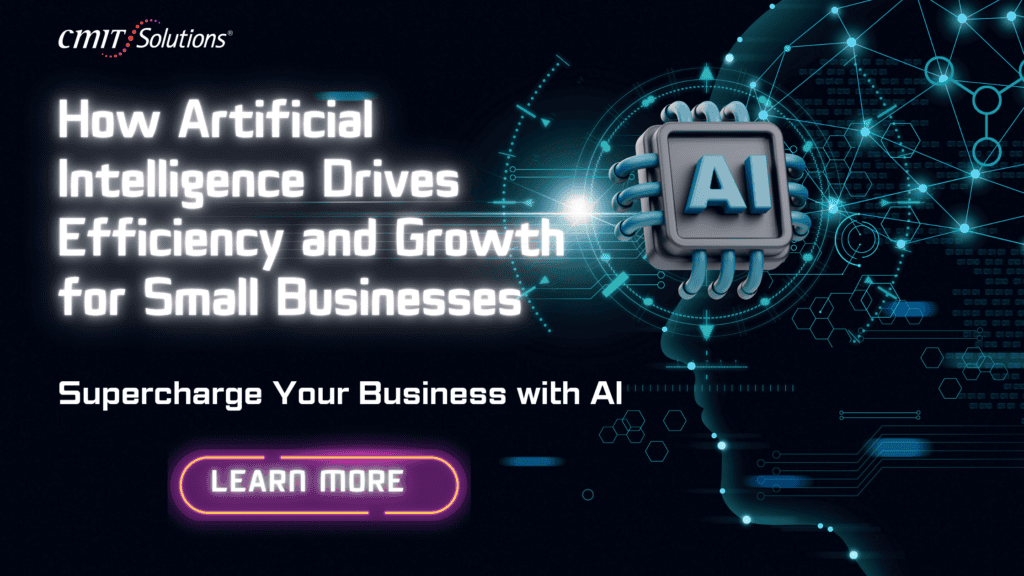- Cloud computing supports remote and hybrid work, enhancing work-life balance and expanding the global talent pool.
- Pay-as-you-go cloud services cut infrastructure costs and allow easy scaling for growing businesses.
- Advanced security protocols and built-in compliance help businesses effortlessly protect data and meet regulatory standards.
Cloud computing has become the backbone of the modern workplace in 2024, creating flexibility, boosting productivity, and fostering innovation like never before. What began as a way to store data and access documents remotely evolved into a thorough infrastructure that businesses rely on for everything from collaboration to data security and sustainability.
Cloud technology is no longer a luxury for business owners of all sizes; it has become necessary for businesses that want to remain competitive and adaptable.
Here’s a closer look at how cloud computing will continue to reshape the workplace going into 2025 and its profound impact on employees, operations, and company culture.
The Rise of Cloud-Driven Flexibility and Remote Work
One of the most notable changes cloud computing brings to the workplace is unprecedented flexibility. With cloud-powered tools, your employees have the freedom to work from virtually any location, at any time, as long as they have an internet connection. In 2024, hybrid work models became the norm, blending in-office collaboration with remote work in ways that benefit both employees and employers.
For employees, this flexibility enhances work-life balance, reduces commute time, and boosts job satisfaction. It also opens access to a global talent pool for your business, allowing you to hire the best people for the job regardless of location. The cloud provides the infrastructure to make this flexibility seamless, with tools like VPNs, file-sharing services, and cloud-based applications that allow for a smooth and secure work experience whether at home, in a cafe, or in the office.
Cloud-Enabled Collaboration and Productivity Tools
Collaboration has taken on new meaning for 2025, thanks to cloud technology. With platforms like Google Workspace, Microsoft 365, and Slack, teams can work together in real-time, whether they’re in the same room or halfway across the globe. Cloud-based collaboration allows for instant updates, synchronous document editing, and transparent feedback loops, all of which help reduce the delays and miscommunications that often come with email-based workflows.
Centralized access to information has transformed the way teams work together. No longer do employees need to dig through long email chains or search multiple folders to find the right document. With everything stored in a cloud-accessible database, work moves faster, and everyone has the information they need at their fingertips. Productivity has surged as your employees can now focus on tasks rather than file management, contributing to a more efficient and organized workplace.
Improved Data Security and Compliance Through the Cloud
Security and compliance are major concerns for businesses of any size. Cloud providers are now more equipped to address these issues with sophisticated security measures like encryption, multi-factor authentication, and regular security audits. Businesses can rely on cloud providers to keep their data safe, as many of these platforms invest heavily in strong security protocols that would be costly for companies to implement on their own.
Beyond security, cloud providers also simplify compliance management. Industry-specific regulations, whether related to finance, healthcare, or data privacy, are addressed through built-in compliance features. Cloud services make it easier to meet regulatory standards by providing updates and security patches as laws and policies evolve. For businesses, this means they can maintain compliance without having to build dedicated infrastructure, reducing both costs and risk.
Cost Efficiency and Scalability
Cost efficiency has long been one of the cloud’s biggest selling points, and moving into 2025, it’s even more advantageous. By moving operations to the cloud, your business can save significantly on infrastructure and maintenance costs. Instead of investing in costly on-site servers, you can simply pay for cloud storage and computing power as needed.
The scalability of cloud services is especially beneficial for growing businesses. Your business can quickly scale up or down depending on demand without the need to install new hardware or adjust physical space. Cloud providers also offer pay-as-you-go pricing, allowing your business to pay only for the resources they use. This pricing flexibility is ideal for startups and small to medium businesses (SMBs) that may have fluctuating needs and want to keep costs under control.
AI Integration in Cloud Services
In 2024, artificial intelligence and cloud computing became inseparable, with AI tools seamlessly embedded into cloud services. These integrations enable your business to automate routine tasks, analyze vast amounts of data in seconds, and make data-driven decisions with ease. AI-powered analytics provide insights that were once difficult, if not impossible, to obtain, allowing your business to tailor products, predict customer needs, and personalize services.
AI-powered customer support tools are another innovation driving transformation. Chatbots and virtual assistants are integrated into cloud platforms, enabling your business to handle customer inquiries 24/7. The ability to analyze customer behavior and preferences also leads to improved customer service, creating more engaging and personalized experiences.
Boosting Employee Engagement and Retention with Cloud Tools
Employee engagement and retention are two areas that benefit from the cloud technology being taken into 2025. Cloud-based HR portals give your employees easy access to personal information, payroll details, and benefits, providing a self-service model that fosters transparency and convenience. E-learning platforms on the cloud also encourage continuous professional growth, allowing your employees to build new skills and advance within their roles.
Cloud tools that focus on the mental health of employees, like wellness apps and platforms offering mental health resources, further enhance job satisfaction. When employees feel valued and have access to growth opportunities and mental health resources, retention improves. Cloud-based engagement tools are making workplaces more inclusive, personalized, and supportive, contributing to a healthier, more motivated workforce.
The Power of Cloud Computing in Business Continuity and Disaster Recovery
Natural disasters, cyberattacks, or unexpected disruptions no longer spell doom for businesses with cloud-based disaster recovery plans. Cloud technology allows data to be backed up continuously, and it is readily available when needed. During a crisis, your business can quickly recover lost data, keeping downtime to a minimum and maintaining operational continuity.
The resilience offered by cloud disaster recovery has proven invaluable, especially in times of uncertainty. Your business can pivot rapidly, adjust to new demands, and avoid major operational disruptions, thanks to the ability to access critical data from any location.
Edge Computing and the Future of Real-Time Data Processing
Edge computing has emerged as a valuable companion to cloud computing, as it helps to reduce latency by bringing data processing closer to the source. For industries that rely on real-time data—such as healthcare, finance, and manufacturing—edge computing allows businesses to act on information instantly, without delay.
When integrated with the Internet of Things (IoT), edge computing lets your business gather insights in real time and make immediate decisions. This combination of cloud and edge technology is especially handy during instances where milliseconds matter, from predictive maintenance in manufacturing to real-time financial analysis.
The Role of Cloud Computing in Green and Sustainable Business Practices
As environmental sustainability becomes a pressing priority, cloud computing offers a way for your business to reduce its carbon footprint. Cloud providers are investing in energy-efficient data centers, some of which are powered by renewable energy sources. You can reduce your business’s energy consumption and contribute to a more sustainable future by moving to the cloud.
Additionally, cloud computing allows your business to adopt more circular practices. For instance, the reduction in on-site servers cuts down on electronic waste, and remote work capabilities decrease the need for physical office space. By embracing cloud technology, your business can make strides toward environmental sustainability while also reaping financial benefits.
Enhancing Workflow Organization with Cloud-Based Project Management Tools
Project management tools on the cloud have become perfect for the workplace as they enable teams to manage tasks, set goals, and monitor progress. Platforms like Asana, Trello, and Monday.com streamline workflows by providing a centralized hub for project updates, deadlines, and team collaboration.
Cross-functional teams, regardless of department or location, can easily share progress and communicate, enhancing accountability and efficiency. Cloud-based project management tools make it possible to monitor project timelines in real-time so that your teams meet deadlines and manage resources effectively.
Transforming IT Support and Maintenance in the Cloud Era
Cloud technology has streamlined IT support, making it easier for your business to manage and maintain its systems. Automated updates and system backups mean that your business no longer needs to rely on in-house IT teams for routine maintenance tasks. Cloud platforms handle these updates automatically so that systems are always up-to-date and secure.
For more complex issues, IT support can be provided remotely. Cloud monitoring allows IT teams to identify and address potential problems before they affect users. This proactive approach to IT maintenance reduces downtime and improves the overall user experience, allowing employees to work with minimal disruptions.
Better Accessibility and Inclusivity with Cloud Technology
Cloud computing is making workplaces more accessible and inclusive. Platforms come with built-in accessibility features, like screen readers, voice commands, and customizable interfaces, supporting employees with various abilities. This means that everyone, regardless of physical ability, has equal access to the tools they need to succeed.
In addition, cloud technology allows your business to hire talent from around the world, breaking down geographic barriers. Cloud-based tools facilitate global collaboration, bringing diverse perspectives to projects and making workplaces more inclusive.
The Cloud’s Role in Employee Onboarding and Training
Moving into 2025, cloud technology is streamlining employee onboarding and training, creating a seamless experience from the first day on the job. With cloud-based onboarding platforms, new hires can access resources, complete paperwork, and begin training remotely or in person, speeding up the time it takes to get fully integrated into your team. Cloud tools centralize training materials, making it easy for employees to access e-learning modules, webinars, and skills assessments at their own pace.
Cloud-based learning management systems (LMS) also support continuous learning, allowing employees to develop skills and earn certifications without leaving the workplace. These platforms use data to tailor training recommendations to each employee’s role and career goals, allowing for personal growth and professional development within your business. Your business can boost employee engagement, satisfaction, and retention by providing an adaptable and self-guided learning experience.
The Future of the Cloud
Looking ahead, cloud computing in 2025 promises further advancements in AI, security, and sustainability. Businesses will likely rely more on cloud-based automation tools and predictive analytics, using AI to personalize customer experiences and make data-driven decisions. Enhanced security measures, particularly in data protection and compliance, are also on the horizon as companies prioritize privacy.
The culture of the workplace will continue to evolve, with even more emphasis on flexibility, inclusivity, and data-driven decisions. As cloud technology advances, businesses that invest in cloud infrastructure will be better positioned to adapt to future workplace demands and maintain their competitive edge.
Whether you need IT or cybersecurity for your business, our team at CMIT Solutions of Fort Lauderdale will see it done. Get your business ready for cloud computing—and more—in 2025 by contacting us today!




